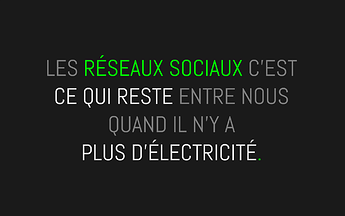Oh thank you Evan for stating, as an opening, that we don’t need to do things the way commercial social media do.
The second point is brilliant as well: gather round children and I will tell you tales of distant days… Nowadays, and especially after this “global confinement” craze, it looks as if free software developers were a bunch of autistic, armchair-stuck, no-life wanabee people. Isn’t this a bit contradictory to creating “social software”? Where’s the use-case? But many are parents, they do have a life, and indeed the presence of children is lacking in too many activist circles.
Trusting the ISP? Nay! Minimize the code, keep it basic. Embrace subscription, groups, storage, don’t worry about interfaces… Embrace KISS, stop thinking in terms of applications and more in terms of (minimalistic) services.
As @rhiaro and others mentioned in the opening panel, The ActivityPub C2S API is great and needs some love. Client application development is fun, it brings fun to the social network…
Focus on existing groups! Start from the existing groups in your social network(s).
Make it easy for people to get started (think YUNoHost, MAZI Zone, FreedomBox, and the like: plug it in and go). Wouldn’t it be nice to have some kind of hardware agent that will monitor whatever you like and report to your server directly? ActivityPub can be used to this kind of things.
Quantified Self… OK I skip this slide, otherwise @natacha is going to cringe  Just to say that Evan mentions opportunities here that can happen “better if you trust your server”.
Just to say that Evan mentions opportunities here that can happen “better if you trust your server”.
And so, life streaming: building your own archive, your own network’s memory, away from predatory surveillance. Thinking generations from now.
We don’t have to get people “Hooked”, contrary to corporate social media. Question is: what do we want to do with our software to other people’s lives?
Can we design for happiness? To help people, make things, learn things, get exercise, set goals, feel gratitude, get enough sleep, finding people who really understand you, talking to people who really need it, deepening friendships, exploring new parts of relationships… Optimizing for meaning – i.e., making sense… What is a meaningful interaction?
Thank you evan for a non-technical talk about the purpose of social networking software!
 Just to say that Evan mentions opportunities here that can happen “better if you trust your server”.
Just to say that Evan mentions opportunities here that can happen “better if you trust your server”.
